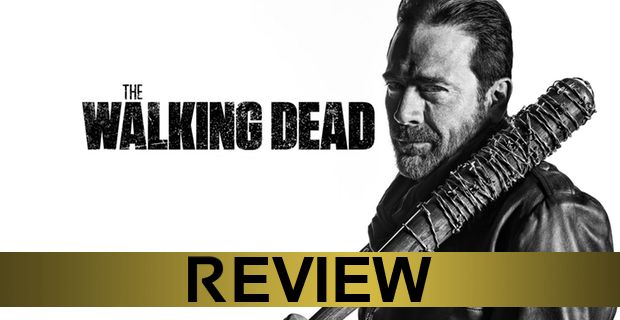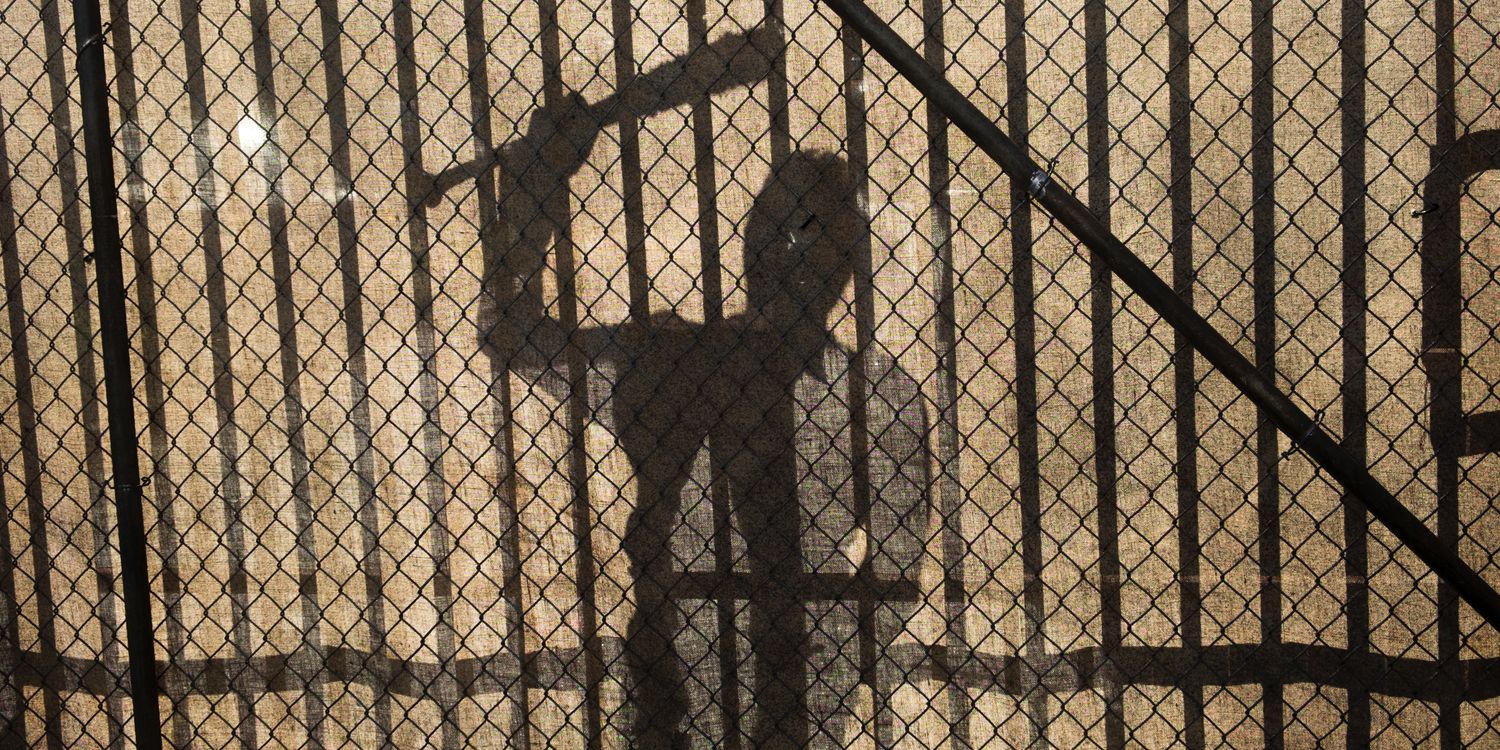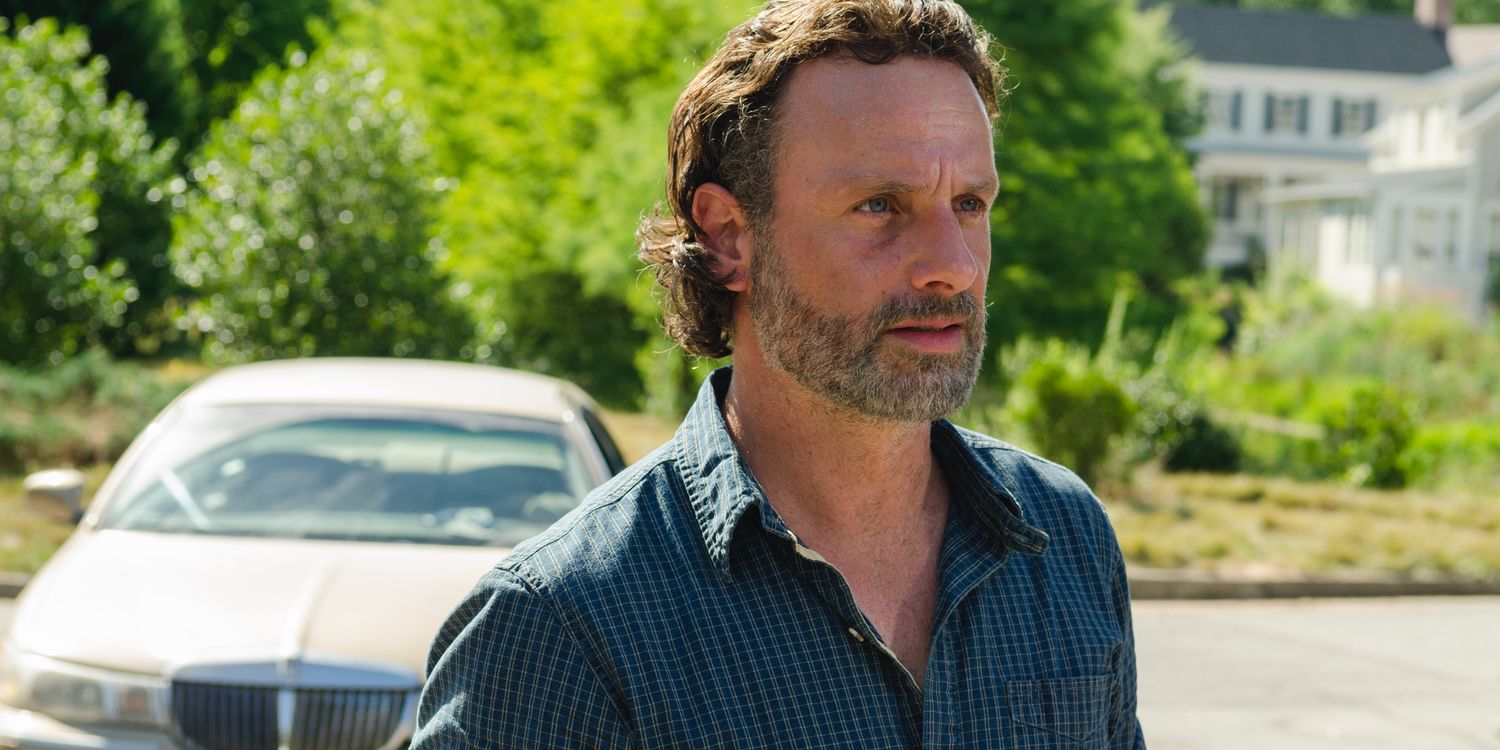It has been a few weeks since the punishing season premiere of The Walking Dead. In that time the series has introduced Ezekiel and The Kingdom, giving both Carol and Morgan new-ish storylines to follow and the semblance of a leader who evokes a sense of hope in an otherwise hopeless world. In that time, the series has also seen fit to demonstrate the awful situation Daryl now finds himself in, as a prisoner of Negan and the Saviors. But what the series hasn't shown are the ways in which life has changed for Rick, the other survivors, and the remaining residents of Alexandria.
Dwight's obsession with his prisoner aside, the time spent watching last week, as Daryl ate dog food sandwiches and listened to 'Easy Street' (with a little Roy Orbison thrown in there for a hint of variety) while peering under his cell door, was less viscerally punishing than 'The Day Will Come When You Won't Be,' but it was still difficult to endure nonetheless. And now, the series comes at its viewers with the (near) 90-minute episode 'Service'. The super-sized installment is pulling double duty in a sense. It is tasked with getting the audience caught up with the goings-on in Alexandria and the fragile emotional state of an enfeebled Rick, but because of what was introduced in the season opener, the episode must also reiterate all the ways in which Negan is a threat. That means having him stop by for a little surprise visit, so his presence can inspire a whole new wave of fear to wash over Rick and the people who are, through no fault of their own, now caught in Negan's grip.
The prospect of an extra-long episode is daunting for anyone who has watched the series for any length of time. The Walking Dead isn't exactly known for its brilliant time management (let's just present the majority of season 6 and especially its winding finale stand as Exhibit A). As such, the idea of spending 90 minutes, watching as Rick explains what the audience already knows to characters that exist as fodder, while waiting for the season's Big Bad to come a knockin' and presumably do something shocking, might cause some viewers to seek solace in the maddening repetition of 'Easy Street'. In other words, 'Service' has its work cut out for it, both in terms of keeping the audience enthralled for nearly an hour and a half, and in terms of addressing the issue of necessity in presenting an episode that is this long this early in the season.
For the most part, 'Service' acts as a direct adaptation of an issue from the comic book series. Again, its main purpose is to underline how dangerous Negan is, and, perhaps more importantly, how he is able to go about subjugating all those people around him. It is no easy feat, even with Jeffrey Dean Morgan doing his level best to make Negan into something other than a cartoon. This is the character's third appearance so far this season, and while last week's episode managed to fill in a few blanks as far as how Negan operates and just how successful he is at breaking those who cross his path, it is apparent that the villain – as a character anyway – has already exhausted whatever stores were in place to make him interesting beyond his malevolence. Aside from a remarkable ability to never let up, 'Service' doesn't present anything to the audience that wasn't already made plainly evident in the season premiere or 'The Cell.'
And without another layer to add, the cake that is Negan becomes increasingly stale. It makes sense that The Walking Dead would want to triple down on the character's villainy; after all, the more the show can paint Negan as a kind of ultra-villain, an adversary unlike any Rick and the other survivors have ever encountered, the more glorious Rick's eventual victory over him will feel. In a lot of ways, this heightened emphasis on Negan's wickedness and the excessive underlining of his oily charm also feels like a chance for the series to address the way it handled the Governor. This time, The Walking Dead is going to go whole hog in recreating a character from the comics, taking the adaptation as far into the extreme as Robert Kirkman's book does (while still operating within the constraints of basic cable, of course). The problem is, this magnification of Negan's aggression and brutality – coupled with Morgan's charismatic performance and the producers' insistence that Negan will share the spotlight with Rick – flirts more with deliberate titillation than an examination of the conflicting allure exploitation can have on an audience.
In the end, the shortcomings of 'Service' aren't entirely the fault the show's approach to its favorite new toy, but that the episode itself is so decompressed and overlong that any tension brought about by the presence of Negan and the Saviors, and Rick's subsequent emasculation by the former, goes slack long before the audience realizes The Walking Dead doesn't have a shocking moment up its sleeve. Instead, the episode settles for establishing Spencer's place in the new status quo, while also positioning Michonne and Rosita as potential difference makers in the uneven conflict against Negan and his followers.
Those moments are effective in giving 'Service' some light at the end of the tunnel. The same is true of Andrew Lincoln's speech, in which he explains to Michonne that he knows Judith isn't his biological daughter, but that he loves her and is determined to protect her just the same. Rick's monologue is a direct reproach of Negan's heartlessness, suggesting that this altered status quo will afford the series' ostensible protagonist an interesting new story line. With luck, future episodes will be more interested in Rick's turn than in underlining the Big Bad's villainy.
-
The Walking Dead continues next Sunday with 'Go Getters' @9pm on AMC.



